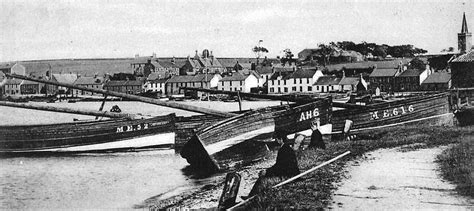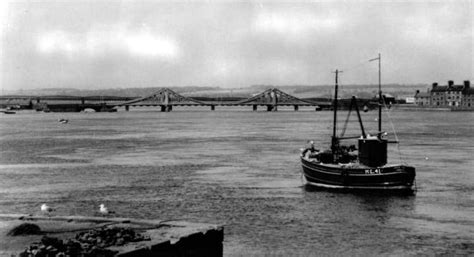

Early History
Ferryden’s history is closely tied to it;s location along the eastern coast of Scotland, overlooking the North Sea. The village likely had early settlements, given it,s proximity to the water and the potential, for fishing and maritime activities.
17th Century
Ferryden began to take shape as a more organised community in the 17th century. It was primarily a fishing village, with residentsrelying on the sea for their livelihoods.
18th Century
In the 18th century, like many coastal villages in Scotland, Ferryden saw growth in it’s fishing industry. The village would have had a strong sense of community, with families working together to sustain their way of life.
19th Century
The 19th century brought further developments to Ferryden. Improved transportation links, including roads and railways, made it easier for people to access the village and it’s resources. The fishing industry continued to thrive, and the village would have seen expansion during this time.
20th Century
In the 20th century, like many coastal villages, Ferryden faced challenges as the fishing industry became more mechanised and less reliant on traditional methods, however it continued to be a picturesque coastal settlement, attracting visitors and remaining a close-knit community.
21st Century
In recent decades, Ferryden has likely experienced changes similar to many other rural and coastal communities in Scotland. Economic shifts and changes in industry have influenced the village’s way of life. Some residents may now commute to nearby towns for work, and tourism may play a more significant role in the local economy.
Ferryden’s rich history, combined with it’s scenic coastal location, makes it a charming place to visit and live.